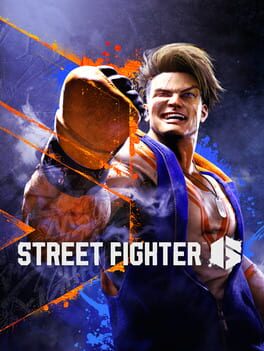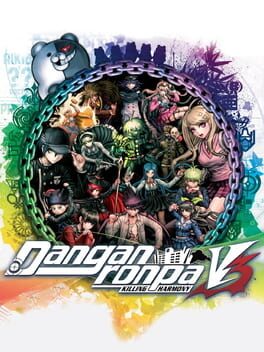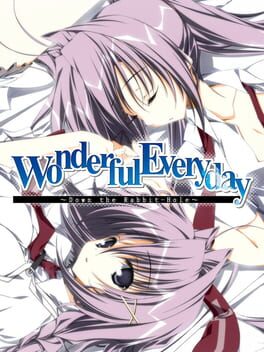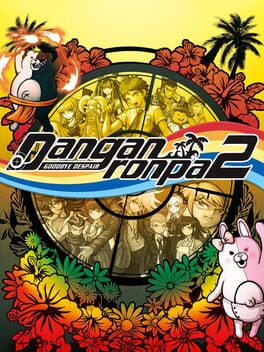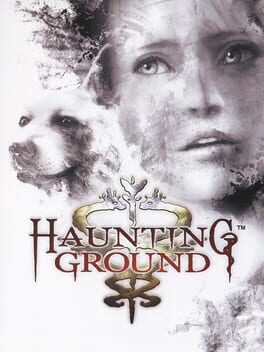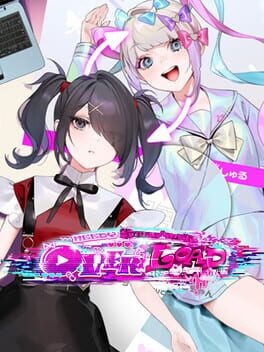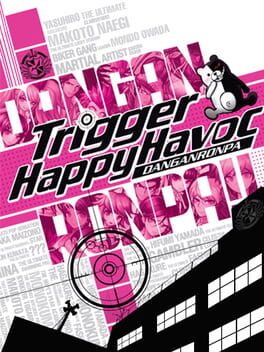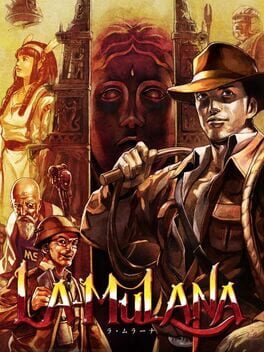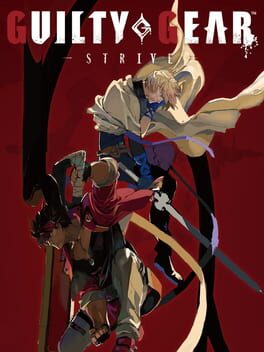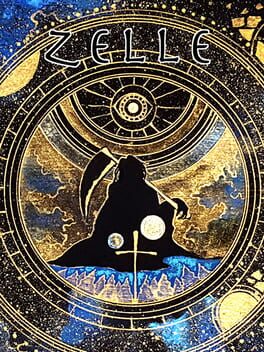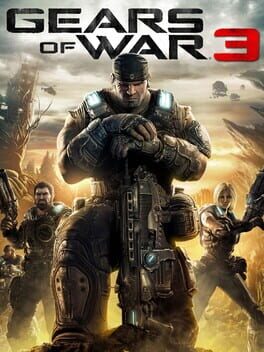Comfort
101 Reviews liked by Comfort
Street Fighter 6
2023
Started playing traditional fighting games around SFV's release and since then I've tried a bunch of SF games, but the only one I really really enjoy is 3rd Strike.
In comparison, characters feel so heavy and chunky to me in SF6, I'm guessing Capcom really had to change their approach to make the new mechanics balanced, and I think that hurts the game for people like me.
And they are fun overall, Drive Rush / Parry are great (I dislike Drive Impact though), and having EX moves available every round start is awesome. But the game is really punishing when you misuse your Drive gauge or guess wrong on offense, and that's kind of a deal breaker for me.
I'm a really active player and Street Fighter in general holds me back and doesn't let me play how I want.
It's hard to judge a game like this because I think it is very successful at what it's trying to do, and I can have a good time playing it and watching it, but it's not made for me at all and I don't think I'll stick with it in the long run.
See you all on Fightcade2 😀
In comparison, characters feel so heavy and chunky to me in SF6, I'm guessing Capcom really had to change their approach to make the new mechanics balanced, and I think that hurts the game for people like me.
And they are fun overall, Drive Rush / Parry are great (I dislike Drive Impact though), and having EX moves available every round start is awesome. But the game is really punishing when you misuse your Drive gauge or guess wrong on offense, and that's kind of a deal breaker for me.
I'm a really active player and Street Fighter in general holds me back and doesn't let me play how I want.
It's hard to judge a game like this because I think it is very successful at what it's trying to do, and I can have a good time playing it and watching it, but it's not made for me at all and I don't think I'll stick with it in the long run.
See you all on Fightcade2 😀
Street Fighter 6
2023
probably my favourite system mechanics in any fighting game, battle hub perfectly encapsulates the arcade setting as cordial yet caustic, netcode is excellent, this is the best starting roster any of these games has ever had, world tour gets dry after a little bit but finally manages to capture these characters essences in a personable and human way which has been a rarity in SF up to this point, endless quality of life features officially make this the new standard to aspire to for all pending releases, dhalsim sounds like he’s telling opponents to kill themselves whenever i land drive impact. five stars
This review contains spoilers
A school made just for us.
This game left me feeling so conflicted after I first finished it years ago. When I was younger, I spent much of my time longing for some sort of fantastical adventure, an escape. I was lonely and sickly, so I threw myself into every book or video game wholeheartedly, eagerly imagining what it would be like to be in the protagonist's shoes, to live in a world different from my own. Daydreaming about something more exciting than the mundanities of my day to day life– To me, fiction was, in many ways, more real than the world around me. So, when I first reached the revelations at the end of this game, it felt like a mirror was being held up to me, it made me uncomfortable and hurt. Like a lot of people, I felt as if I was being attacked for daring to care. Well, I definitely don't feel that way anymore. My opinion on Danganronpa V3’s finale has (obviously, with my 5-star rating) done a complete 180. Upon replay, I’ve realized how well-structured and thoughtful this game is, and it’s become a personal favorite.
V3 is a gentle, poignant, and layered game, both in terms of its actual moment-to-moment story and what it is trying to say with its metanarrative. Firstly, this is the best Danganronpa game in terms of the actual meat of the product. The character writing is a notable step up from previous games, with every character being likable and fleshed out in their own right. Even larger-than-life characters such as Miu contain a depth that others of the same ilk from previous games, such as Hifumi, never had. V3’s main cast are easily some of the best characters of the franchise– Shuichi, Kaede, Maki, Kaito, and Kokichi are great, and the emotional core of the “training trio” is felt throughout the game, making the later chapters especially powerful. The cast deals with the loss of their friends in a deeper way as well, and their lingering grief makes V3 haunting even before the final truth comes out.
The class trials are great as well, with only Chapter 3’s being somewhat messy. They're all more complex than in previous games, and despite the longer length of the trials, they don’t drag to me. Each trial also ties in to the overarching themes of truth and lies, what is real and what is not. While it may seem obvious that a mystery game’s cases will deal with, well, the truth, I think V3 explores this in interesting ways. Of course, there's the obvious addition of lie bullets, allowing Shuichi to commit perjury when he needs to move the trial along, but it goes beyond that. Chapter 1 is a good example of this, with Kaede’s unreliable narration masking the fact that she had carried out the murder, with her true goal being to expose the mastermind. Oftentimes, the motives themselves tie directly into the theme of subjective truth. Kirumi is willing to sacrifice the few for the many, and to her, the truth is that this must be done to save her country, though she had been a loyal friend just days before. Gonta weighs the soul-crushing “truth” of the outside world with the already bleak environment his friends are in, and decides they’d be better off dead than pursuing the truth. On top of this, the mechanics of the trial are improved as well, with the minigames actually being consistently fun (a miracle). The new nonstop debates, Mind Mine, Psyche Taxi, and even Hangman’s Gambit are a vast improvement on previous games. Like, I love Hajime, but snowboarding in his mindscape is torture; meanwhile, Psyche Taxi is a blast.
As usual, Masafumi Takada does a phenomenal job with the soundtrack (I think V3 is his finest work with the series for sure). I really don’t think the game has a single bad track. Each song suits the atmosphere perfectly– “Nightmare in the Locker” and “Rise of the Ultimates” creates dread at eerie moments, “Heaven of Almost Hell” builds melancholy gorgeously, “Darkness Time” is the essence of night’s mystery. “Beautiful Lie” is a beautiful lie, with its nostalgic melody harkening back to school days that never were. It’s great.
It’s hard to talk about my favorite parts of V3 without discussing the ending and its implications. I used to think it came out of nowhere, but I can’t believe I ever used to think that because there’s literally heaps of foreshadowing towards it, and everything comes together wonderfully. Truth versus lies, reality versus fiction… The whole game, these concepts loom over the player. Kaede, knowing she is probably marching towards her execution, tells Shuichi to always pursue the truth. Kokichi, the embodiment of a lie, misleads the group incessantly. He wants to convince everyone, perhaps even himself, that he loves the killing game, but he wants to end it more than anyone. Kaito, trapped and gravely ill but wanting to make amends with his closest friend, believes Shuichi is capable of reaching something beyond the truth.
But what lies beyond the truth? For a while, Shuichi is convinced it is hope, a theme incredibly interwoven with the previous entries. However, what’s beyond the “truth” is something deeply horrifying. Fabricated lives. To be the victim of decisions made by the you that you no longer are. The you that, in your mind, you never were. Nothing about you is real, your existence is the ultimate lie. The person you viewed as a trusted friend now speaks to you coldly, regarding you as her creation. Narratively, I think this reveal is so chilling. A beautiful tragedy. The way it wraps up its exploration of truth and lies is incredibly touching. After all, if everything you know is a lie, isn’t that your truth? Yes, to the onlookers, your life may be fiction, but it is the truth to you. As Shuichi said, our pain is real. The group rejecting both hope and despair, refusing to participate in Tsumugi’s game, not giving the audience what they want, ending Danganronpa with their own hands… it’s insanely powerful. Going off script, defying the author one final time, is the ultimate liberation.
While I think V3 contains a lot of commentary on fan culture, I often see people claim that this game "hates" the previous entries and the series’ fans. No, I don't buy it. I think V3 fundamentally understands why fiction speaks to us, why we love it so much, why it's so powerful. Because of this, I think it cares deeply for the prior entries, which is why it needs to bring the series to an end. It's both a love letter to the series and a final goodbye– A way to end a series you put your heart into before it becomes meaningless muck, regurgitated over and over again like so many fictional endeavors eventually become (I mean, think of every TV show that drags itself out for years on end; you can feel the passion leaving as it drudges on). V3 doesn't want to suffer that fate.
I find it so fitting, then, that Shuichi tells Tsumugi once she’s lost that she never appreciated them or the power of fiction. Despite being the “author”, she had forgotten what makes fiction so capable of drawing in passion, so impactful. By ending it the way it does, it rejects "hope or despair" just as much as the characters themselves. It's choosing its own fate, ending on its own terms. So what if the characters and prior games were fictional? Fiction is beautiful. Fiction is compelling, thoughtful, capable of moving and inspiring, capable of changing your own perception of the world. And in its own way, fiction is truth. Does it matter whether Tsumugi was lying or telling the truth? The truth is up to you. It’s so heartbreaking to see, for example, Shuichi’s audition tape, but, well… so what? That Shuichi doesn’t define the Shuichi by the end of the game. Sometimes you must say goodbye, no matter how big or small: whether it be farewell to a fictional franchise that you love, farewell to the you you once were, farewell to everything you once knew as concrete truth. There’s beauty to be found even in the most twisted of scenarios– Maki, Shuichi, and Himiko preparing to step out of the dome, uncertain, but ready to mix their truth with the truth that lies beyond, the real and the fiction, is so perfect. I love this game so much. I don’t know what else to say. I could talk about it for hours, and there’s so much to read into and analyze. V3 is an unsolvable catbox of a mystery where truth and lies blend into one, and what truly matters is the emotion it brings forth. It’s, in of itself, another beautiful lie.
This game left me feeling so conflicted after I first finished it years ago. When I was younger, I spent much of my time longing for some sort of fantastical adventure, an escape. I was lonely and sickly, so I threw myself into every book or video game wholeheartedly, eagerly imagining what it would be like to be in the protagonist's shoes, to live in a world different from my own. Daydreaming about something more exciting than the mundanities of my day to day life– To me, fiction was, in many ways, more real than the world around me. So, when I first reached the revelations at the end of this game, it felt like a mirror was being held up to me, it made me uncomfortable and hurt. Like a lot of people, I felt as if I was being attacked for daring to care. Well, I definitely don't feel that way anymore. My opinion on Danganronpa V3’s finale has (obviously, with my 5-star rating) done a complete 180. Upon replay, I’ve realized how well-structured and thoughtful this game is, and it’s become a personal favorite.
V3 is a gentle, poignant, and layered game, both in terms of its actual moment-to-moment story and what it is trying to say with its metanarrative. Firstly, this is the best Danganronpa game in terms of the actual meat of the product. The character writing is a notable step up from previous games, with every character being likable and fleshed out in their own right. Even larger-than-life characters such as Miu contain a depth that others of the same ilk from previous games, such as Hifumi, never had. V3’s main cast are easily some of the best characters of the franchise– Shuichi, Kaede, Maki, Kaito, and Kokichi are great, and the emotional core of the “training trio” is felt throughout the game, making the later chapters especially powerful. The cast deals with the loss of their friends in a deeper way as well, and their lingering grief makes V3 haunting even before the final truth comes out.
The class trials are great as well, with only Chapter 3’s being somewhat messy. They're all more complex than in previous games, and despite the longer length of the trials, they don’t drag to me. Each trial also ties in to the overarching themes of truth and lies, what is real and what is not. While it may seem obvious that a mystery game’s cases will deal with, well, the truth, I think V3 explores this in interesting ways. Of course, there's the obvious addition of lie bullets, allowing Shuichi to commit perjury when he needs to move the trial along, but it goes beyond that. Chapter 1 is a good example of this, with Kaede’s unreliable narration masking the fact that she had carried out the murder, with her true goal being to expose the mastermind. Oftentimes, the motives themselves tie directly into the theme of subjective truth. Kirumi is willing to sacrifice the few for the many, and to her, the truth is that this must be done to save her country, though she had been a loyal friend just days before. Gonta weighs the soul-crushing “truth” of the outside world with the already bleak environment his friends are in, and decides they’d be better off dead than pursuing the truth. On top of this, the mechanics of the trial are improved as well, with the minigames actually being consistently fun (a miracle). The new nonstop debates, Mind Mine, Psyche Taxi, and even Hangman’s Gambit are a vast improvement on previous games. Like, I love Hajime, but snowboarding in his mindscape is torture; meanwhile, Psyche Taxi is a blast.
As usual, Masafumi Takada does a phenomenal job with the soundtrack (I think V3 is his finest work with the series for sure). I really don’t think the game has a single bad track. Each song suits the atmosphere perfectly– “Nightmare in the Locker” and “Rise of the Ultimates” creates dread at eerie moments, “Heaven of Almost Hell” builds melancholy gorgeously, “Darkness Time” is the essence of night’s mystery. “Beautiful Lie” is a beautiful lie, with its nostalgic melody harkening back to school days that never were. It’s great.
It’s hard to talk about my favorite parts of V3 without discussing the ending and its implications. I used to think it came out of nowhere, but I can’t believe I ever used to think that because there’s literally heaps of foreshadowing towards it, and everything comes together wonderfully. Truth versus lies, reality versus fiction… The whole game, these concepts loom over the player. Kaede, knowing she is probably marching towards her execution, tells Shuichi to always pursue the truth. Kokichi, the embodiment of a lie, misleads the group incessantly. He wants to convince everyone, perhaps even himself, that he loves the killing game, but he wants to end it more than anyone. Kaito, trapped and gravely ill but wanting to make amends with his closest friend, believes Shuichi is capable of reaching something beyond the truth.
But what lies beyond the truth? For a while, Shuichi is convinced it is hope, a theme incredibly interwoven with the previous entries. However, what’s beyond the “truth” is something deeply horrifying. Fabricated lives. To be the victim of decisions made by the you that you no longer are. The you that, in your mind, you never were. Nothing about you is real, your existence is the ultimate lie. The person you viewed as a trusted friend now speaks to you coldly, regarding you as her creation. Narratively, I think this reveal is so chilling. A beautiful tragedy. The way it wraps up its exploration of truth and lies is incredibly touching. After all, if everything you know is a lie, isn’t that your truth? Yes, to the onlookers, your life may be fiction, but it is the truth to you. As Shuichi said, our pain is real. The group rejecting both hope and despair, refusing to participate in Tsumugi’s game, not giving the audience what they want, ending Danganronpa with their own hands… it’s insanely powerful. Going off script, defying the author one final time, is the ultimate liberation.
While I think V3 contains a lot of commentary on fan culture, I often see people claim that this game "hates" the previous entries and the series’ fans. No, I don't buy it. I think V3 fundamentally understands why fiction speaks to us, why we love it so much, why it's so powerful. Because of this, I think it cares deeply for the prior entries, which is why it needs to bring the series to an end. It's both a love letter to the series and a final goodbye– A way to end a series you put your heart into before it becomes meaningless muck, regurgitated over and over again like so many fictional endeavors eventually become (I mean, think of every TV show that drags itself out for years on end; you can feel the passion leaving as it drudges on). V3 doesn't want to suffer that fate.
I find it so fitting, then, that Shuichi tells Tsumugi once she’s lost that she never appreciated them or the power of fiction. Despite being the “author”, she had forgotten what makes fiction so capable of drawing in passion, so impactful. By ending it the way it does, it rejects "hope or despair" just as much as the characters themselves. It's choosing its own fate, ending on its own terms. So what if the characters and prior games were fictional? Fiction is beautiful. Fiction is compelling, thoughtful, capable of moving and inspiring, capable of changing your own perception of the world. And in its own way, fiction is truth. Does it matter whether Tsumugi was lying or telling the truth? The truth is up to you. It’s so heartbreaking to see, for example, Shuichi’s audition tape, but, well… so what? That Shuichi doesn’t define the Shuichi by the end of the game. Sometimes you must say goodbye, no matter how big or small: whether it be farewell to a fictional franchise that you love, farewell to the you you once were, farewell to everything you once knew as concrete truth. There’s beauty to be found even in the most twisted of scenarios– Maki, Shuichi, and Himiko preparing to step out of the dome, uncertain, but ready to mix their truth with the truth that lies beyond, the real and the fiction, is so perfect. I love this game so much. I don’t know what else to say. I could talk about it for hours, and there’s so much to read into and analyze. V3 is an unsolvable catbox of a mystery where truth and lies blend into one, and what truly matters is the emotion it brings forth. It’s, in of itself, another beautiful lie.
This review contains spoilers
Still think about this one a lot, particularly some of the idiosyncratic theories. Is SCA-DI offering one of the very very few honest analysis of futanari? Is Takuji trans? Does Zakuro suffer because she refuses to "live happily"? Does "live happily" entail that we ignore all negative aspects of life? If not, how do we know to stop annotating, like Ayana suggests? Is it really possible, or even further, necessary, for delusions to help cope with life? Why does Ayana's theme contain Morse code stating that she's Mahou Shoujo Riruru? What the fuck was the point of that Asumi interlude? Do we need to know any of the answers to these questions to understand Subahibi? Maybe not, which might tie into SCA-DI's theory that we take stories and narratology too seriously.
On the real though, totally understand why some people despise this, desperately needs an editor and is completely submerged into channer-esque culture (see: the weird ironic homophobia in Jabberwocky I). Still a pretty profound narrative, especially for the medium.
On the real though, totally understand why some people despise this, desperately needs an editor and is completely submerged into channer-esque culture (see: the weird ironic homophobia in Jabberwocky I). Still a pretty profound narrative, especially for the medium.
Basically improves on the first game in every way. It has a more likeable and fleshed out cast, and its mysteries are consistently solid, except for maybe chapter 3, which is messy but I still think is ultimately... fine. It takes advantage of the "Ultimate student" concept more, with their talents often playing a major role in the mysteries as well. Basically, if Danganronpa THH was focused on providing a pulpy and stylish ride above all else, SDR2 expands upon, well, everything else. However, this "bigger and better" mindset does lead to losing the cramped, eerie atmosphere of DR1, which is a shame. Still a great game, though.
When I was a teenager, this was one of my favorite games ever, and I definitely see why. More than any other game in the series, imo, this one has the soul of a teen movie, if that makes sense? It's a compliment. Truly a story best appreciated by someone who is (or was) an angsty teen that doesn't feel as if they fit in-- when I was 14, I may have been reeled in by the colorful cast, vivid art direction, and unique murder mystery storyline, but I was enamored with the way it managed to capture teenaged misfit anger with its characters (especially my boy Hajime) while also extending a lot of compassion to this demographic, despite its hyperviolent presentation. It gave me a lot of comfort at a time when I needed it most, and I'll always love it for that.
I still find this game to be very earnest and kind in its messaging (which I kind of forgot about it, actually), and honestly? I love the twist and conclusion of SDR2. Idc! The revelation about the cast's identities, especially Hajime's, is still pretty heartbreaking to me (talk about cranking up the aforementioned broody teen drama to 100). It's a hyperbolic yet frank look at the ways in which the school system (and Society™) expect kids to be perfect all the time, yet has a tendency to use them, exhaust them, then spit them out. It then delivers its final message, a warm blanket to anyone who feels hopeless in the moment: you can always look towards the future. One of the most frequently played songs in the game is the nostalgic "Beautiful Ruin", and I think that describes the cast's collective character arc well-- What happened in the past does not define you, and while you will always carry those things with you, you can still move on and have a fulfilling life. Though your past traumas and pain may seem like a heavy burden to bear, there's beauty waiting for you in the world. It may sound cheesy, but that's kind of why I love this game so much. It wears its heart on its sleeve, and despite its often goofy, tongue-in-cheek mood, it wants the best for everyone.
When I was a teenager, this was one of my favorite games ever, and I definitely see why. More than any other game in the series, imo, this one has the soul of a teen movie, if that makes sense? It's a compliment. Truly a story best appreciated by someone who is (or was) an angsty teen that doesn't feel as if they fit in-- when I was 14, I may have been reeled in by the colorful cast, vivid art direction, and unique murder mystery storyline, but I was enamored with the way it managed to capture teenaged misfit anger with its characters (especially my boy Hajime) while also extending a lot of compassion to this demographic, despite its hyperviolent presentation. It gave me a lot of comfort at a time when I needed it most, and I'll always love it for that.
I still find this game to be very earnest and kind in its messaging (which I kind of forgot about it, actually), and honestly? I love the twist and conclusion of SDR2. Idc! The revelation about the cast's identities, especially Hajime's, is still pretty heartbreaking to me (talk about cranking up the aforementioned broody teen drama to 100). It's a hyperbolic yet frank look at the ways in which the school system (and Society™) expect kids to be perfect all the time, yet has a tendency to use them, exhaust them, then spit them out. It then delivers its final message, a warm blanket to anyone who feels hopeless in the moment: you can always look towards the future. One of the most frequently played songs in the game is the nostalgic "Beautiful Ruin", and I think that describes the cast's collective character arc well-- What happened in the past does not define you, and while you will always carry those things with you, you can still move on and have a fulfilling life. Though your past traumas and pain may seem like a heavy burden to bear, there's beauty waiting for you in the world. It may sound cheesy, but that's kind of why I love this game so much. It wears its heart on its sleeve, and despite its often goofy, tongue-in-cheek mood, it wants the best for everyone.
Haunting Ground
2005
Haunting Ground es probablemente la mayor decepción que he tenido en todo el año.
Uno de esos eternos pendientes, de un género por el que siempre he mostrado cariño, con un resquicio de lecturas e interés generalizado por parte de una comunidad dedicada que suele presentarlo como el eterno olvidado.
En general, creo que los desarrollos de las grandes compañías, en simultáneo a su especialización y exceso de sofisticación en tanto a sus condiciones de producción cada vez más masivas, nos están ofreciendo propuestas artísticas cada vez más cobardes, ensimismadas en una idea de 'valentía' que o bien tranza por patrones conservadores o solo busca hacer mímica de otros medios ya más asentados en base a un aparente prestigio. No lo puedo negar, siento una fascinación mucho más marcada por lo que sea que sacasen estas empresas en la época de PS1 y PS2.
Hounting Ground es la apariencia de los juegos de dicha época, pero transgredida por su completa falta de tacto. La premisa básica desde la que se instala, el sobrevivir a las prisas siendo el objeto de consumo de una enormidad de pjs. que no te observan sino como objeto sexual o representación de una pureza virginalidad, la veo fracturada por una gigantesca falta de cariño y contacto con su protagonista, Fiona.
Si bien la idea es clara, de hacer partícipe a la jugadora de esta misma relación asimétrica de poder en la cosificación femenina, en última instancia no resulta porque su perspectiva de la figura femenina está en sí misma desnaturalizada. No es la cámara cosificando un cuerpo, no son las mecánicas aportando a la propuesta, sino los diseñadores dando el salto en primera instancia. Instalan su estética del deseo para luego pretender que es un artificio construido en colectivo.
Fuera de allí también me ha resultado difícil verle nada de particular valor. El juego es todo lo convencional que podría ser un Silent Hill-like, pero perdiendo introspección en el proceso. Toda posible faceta onírica está quebrantada por un exceso de expresividad, de entender a los cuerpos de sus personajes como artilugios de deformación o excentricidad. De aniquilar la individualidad alrededor de una ilusión de sexualidad consumada que ni resulta operante, pues los desarrolladores juegan con contrastes violentos que no parecen seguir una coherencia propia, ni enteramente receptiva, pues todo en el juego está al servicio de sus métricas, de su sistema de finales, de estar cómodamente puesto al servicio del jugador que se sumerja en Haunting Ground como mero trámite para acceder a su historia, misma que, como se desprende de lo que anteriormente he comentado, dista mucho de ser santa de mi devoción. Más bien me ha repelido por completo, y encuentro casi que ridículo en ciertos grados el querer tratar estos temas pero debiendo pasar necesariamente por la distorsión perturbante que se esperaría de historias de magia negra y cultos. Algo no termina de encajar.
Uno de esos eternos pendientes, de un género por el que siempre he mostrado cariño, con un resquicio de lecturas e interés generalizado por parte de una comunidad dedicada que suele presentarlo como el eterno olvidado.
En general, creo que los desarrollos de las grandes compañías, en simultáneo a su especialización y exceso de sofisticación en tanto a sus condiciones de producción cada vez más masivas, nos están ofreciendo propuestas artísticas cada vez más cobardes, ensimismadas en una idea de 'valentía' que o bien tranza por patrones conservadores o solo busca hacer mímica de otros medios ya más asentados en base a un aparente prestigio. No lo puedo negar, siento una fascinación mucho más marcada por lo que sea que sacasen estas empresas en la época de PS1 y PS2.
Hounting Ground es la apariencia de los juegos de dicha época, pero transgredida por su completa falta de tacto. La premisa básica desde la que se instala, el sobrevivir a las prisas siendo el objeto de consumo de una enormidad de pjs. que no te observan sino como objeto sexual o representación de una pureza virginalidad, la veo fracturada por una gigantesca falta de cariño y contacto con su protagonista, Fiona.
Si bien la idea es clara, de hacer partícipe a la jugadora de esta misma relación asimétrica de poder en la cosificación femenina, en última instancia no resulta porque su perspectiva de la figura femenina está en sí misma desnaturalizada. No es la cámara cosificando un cuerpo, no son las mecánicas aportando a la propuesta, sino los diseñadores dando el salto en primera instancia. Instalan su estética del deseo para luego pretender que es un artificio construido en colectivo.
Fuera de allí también me ha resultado difícil verle nada de particular valor. El juego es todo lo convencional que podría ser un Silent Hill-like, pero perdiendo introspección en el proceso. Toda posible faceta onírica está quebrantada por un exceso de expresividad, de entender a los cuerpos de sus personajes como artilugios de deformación o excentricidad. De aniquilar la individualidad alrededor de una ilusión de sexualidad consumada que ni resulta operante, pues los desarrolladores juegan con contrastes violentos que no parecen seguir una coherencia propia, ni enteramente receptiva, pues todo en el juego está al servicio de sus métricas, de su sistema de finales, de estar cómodamente puesto al servicio del jugador que se sumerja en Haunting Ground como mero trámite para acceder a su historia, misma que, como se desprende de lo que anteriormente he comentado, dista mucho de ser santa de mi devoción. Más bien me ha repelido por completo, y encuentro casi que ridículo en ciertos grados el querer tratar estos temas pero debiendo pasar necesariamente por la distorsión perturbante que se esperaría de historias de magia negra y cultos. Algo no termina de encajar.
Had very specific spectations, so I wasn't really disappointed when they weren't met. It's pretty easy for me to just imagine how this game would be so it was appealing to me specifically, so I just appreciate the experience for what it is, even if I think some stuff feels misguided.
I love the protagonist just for "Internet Yamero" by Aiobahn ft. KOTOKO, a song that released last month (that literally made me play this because it won't leave my head), so I was just rooting for her through all the game.
I love the protagonist just for "Internet Yamero" by Aiobahn ft. KOTOKO, a song that released last month (that literally made me play this because it won't leave my head), so I was just rooting for her through all the game.
Honestly? This game still rules imo. It's not going to be everyone's cup of tea but it's still a VN classic. Certainly the later entries of the series upstage it but it has a truly delicious atmosphere which I think comes mostly from it initially being a standalone game. It feels smaller in scope than 2 or V3 but I think that allows it to make Hope's Peak feel claustrophobic. Obviously school horror is nothing new, especially in J-horror, but Danganronpa manages to make it feel stylishly eerie and fresh with its neon lighting and anxiety-inducing soundtrack. It has a pulpy, kind of sleazy charm to it, like a B-horror film, and I still love it all these years later. I do think a lot of the commentary about the Japanese school system is going to inevitably be lost on most people unless they go out of their way to read about it, but still it captures that universal feeling of school simultaneously being a nightmare and a sanctuary to young people.
Also it has Celes, who's turbo mega slay is probably the reason why I'm into visual novels and the like in the first place. Like, her design intrigued 13 year old me so much that I immediately got into the game. Lol
Also it has Celes, who's turbo mega slay is probably the reason why I'm into visual novels and the like in the first place. Like, her design intrigued 13 year old me so much that I immediately got into the game. Lol
La-Mulana
2012
La-Mulana plain simply hates you. it's also my favorite game of all time.
it feels like an AU where the genre evolved using Super Metroid core design elements, pushing them even further, rather than SotN shitty grindy 'find a new tool to sort this wall' design. based soundtrack
best metroidvania ever made.
it feels like an AU where the genre evolved using Super Metroid core design elements, pushing them even further, rather than SotN shitty grindy 'find a new tool to sort this wall' design. based soundtrack
best metroidvania ever made.
Omori
2020
hay muchísimo que podría haberse llevado mejor, de forma mucho más responsable. se acomoda demasiado en ciertos tropos sobre la infancia que resultan desgastantes y hasta nefastos de considerar de cara a una discusión más seria sobre qué realmente es la responsabilidad, hasta qué punto es siquiera posible exigírsela a un menor en temas tan delicados como los que el juego decide abordar, y en general todo su comentario sobre madurar y distanciarse del confort de la vida hikkikomori se me antoja artificial, por no decir que su mero acercamiento es hasta peligroso de cara a personas que hemos vivido (estamos viviendo) procesos similares. además, como muchas otras propuestas similares que caen en el surreal RPG, se ve obligado a reproducir la cosmética típica del horror más banal de redes como tumblr, vinculándose de golpe con la retórica del creepypasta que, a mi entender, no le beneficia en lo absoluto, si acaso trivializa algunos de sus temas
pero aquí me encuentro puntuándolo desde el corazón, que seguro es cosa mía, pero pocos temas han conseguido romperme de forma tan inmediata como este:
https://www.youtube.com/watch?v=1yIcUg5FyIs
quizá el que sus consideraciones éticas estén tan rotas es precisamente parte del punto. no sé si me gusta, creo que no, pero me alegro muchísimo de haberlo experimentado, de haberle hallado contexto narrativo y temático a su banda sonora
pero aquí me encuentro puntuándolo desde el corazón, que seguro es cosa mía, pero pocos temas han conseguido romperme de forma tan inmediata como este:
https://www.youtube.com/watch?v=1yIcUg5FyIs
quizá el que sus consideraciones éticas estén tan rotas es precisamente parte del punto. no sé si me gusta, creo que no, pero me alegro muchísimo de haberlo experimentado, de haberle hallado contexto narrativo y temático a su banda sonora
Guilty Gear: Strive
2021
being an axl main is awesome. everyone hates you and routinely skips past playing you for the simple crime of forcing them to play a bit of neutral. you prevent them from running their twenty second lockdown pressure drills for a bit and it’s the end of the world; they’d much rather go up against the litany of other rushdown characters who can all do that or the guy that can eat your healthbar in three decisions.
the game is fine. as far as its pace is concerned, strive is essentially rocket tag, and that’s a fine thing to enjoy. it just comes at the obviously infamous cost of representing a departure from xrd (or prior entries but i won’t pretend to be knowledgeable in this arena). this has invited natural comparisons to street fighter (super turbo in particular) and samurai shodown, but i think the core system mechanics manage to carve their own niche within the high damage subgenre. for all the debate around simplification, it seems clear to me that arcsys’s goal was to create a fighting game that the majority of people familiar with the genre can learn simply through relevant match experience, avoiding the confines of the training room and bringing the title in line with an older arcade experience. again, totally fine thing to be. i do think i prefer xrd’s brand of bullshit but not because it’s inherently more cerebral or anything - matches just tend to feel more dynamic. it’s an instance where strives emphasis on creatively using meter’s hundreds of applicable permutations to open holes in opponents defense is somewhat negated by the lack of opportunities to tap in per round and by how viciously quick some of these rounds can close out.
i strongly dislike the menus, user interface, and lobby system, but this aside it’s curious to me that strive represents an artistic departure from the rest of the series as well and this aspect has mostly been swept under the rug by the community. i assume this is fine for most because it’s pretty and because we will never escape the fondness gamers have for the metal gear rising/anarchy reigns soundtrack. still, its very much an intentional continuation of xrds aesthetic sensibilities - understandable given that titles landmark reception - but it feels worth mentioning that we are at this point quite far removed from the grungy, muted, and punk tone of earlier entries. but giovannas hot so who can say whether this is bad or not
the game is fine. as far as its pace is concerned, strive is essentially rocket tag, and that’s a fine thing to enjoy. it just comes at the obviously infamous cost of representing a departure from xrd (or prior entries but i won’t pretend to be knowledgeable in this arena). this has invited natural comparisons to street fighter (super turbo in particular) and samurai shodown, but i think the core system mechanics manage to carve their own niche within the high damage subgenre. for all the debate around simplification, it seems clear to me that arcsys’s goal was to create a fighting game that the majority of people familiar with the genre can learn simply through relevant match experience, avoiding the confines of the training room and bringing the title in line with an older arcade experience. again, totally fine thing to be. i do think i prefer xrd’s brand of bullshit but not because it’s inherently more cerebral or anything - matches just tend to feel more dynamic. it’s an instance where strives emphasis on creatively using meter’s hundreds of applicable permutations to open holes in opponents defense is somewhat negated by the lack of opportunities to tap in per round and by how viciously quick some of these rounds can close out.
i strongly dislike the menus, user interface, and lobby system, but this aside it’s curious to me that strive represents an artistic departure from the rest of the series as well and this aspect has mostly been swept under the rug by the community. i assume this is fine for most because it’s pretty and because we will never escape the fondness gamers have for the metal gear rising/anarchy reigns soundtrack. still, its very much an intentional continuation of xrds aesthetic sensibilities - understandable given that titles landmark reception - but it feels worth mentioning that we are at this point quite far removed from the grungy, muted, and punk tone of earlier entries. but giovannas hot so who can say whether this is bad or not
Islands: Non-Places
2016
Zelle
2019
Zelle is a very simple but honestly told piece lightly touching on sin, pushed towards audiences going through loss or angst with its charm. It's nothing particularly crazy or awe-inspiring, hell it only barely got me to tears by the end of it, but it's got a ridiculous amount of charm and care into every single piece of the adventure. Even with its very budget artstyle I was spooked and unnerved, and there wasn't a point where I ever felt it dragged. Its really only issue is that the zenith it hits is never particularly interesting, and honestly if I wasn't so brought in by the game's heart I don't think I could recommend it as much as I am doing so right now.
But, since I did, I hope that you consider picking it up and experience the ride yourself.
But, since I did, I hope that you consider picking it up and experience the ride yourself.
Gears of War 3
2011
Acabo de dedicarle 3000 palabras esto en mi blog, y no me queda energía para explayarme como suelo hacer. Pero sí diré que, a nivel mecánico, este juego se siente como el más inseguro de los tres. Pequeños detalles, como que tengas que apretar el botón para recoger munición o ejecutar a enemigos convalecientes, dan a entender un estilo de pelea más metódico, y es cierto que casi todas las armas añadidas están pensadas para combate pesado y calculado. Pero creo que por el camino se ha perdido parte de esa rapidez y tensión que caracterizaba a los títulos anteriores. En cuanto a la historia, no tengo mucho más que decir, salvo añadir que, ahora más que nunca, tengo claro que estos juegos no son de tendencia fascista, como alguna gente parece ver, pero sí que se sienten resignados a un estilo de vida nihilista. Eso hace que, de todos los modos campañas, éste sea el que probablemente se sienta más miserable.
-------------------------------------------------
I just dedicated 3000 words to these games on my blog, and I don't have any stamina let to keep talking about them. But I will say that, mechanically, this game feels like the most insecure of the three. Small details, like having to keep pressing the button to pick up ammo or executing enemies, hint towards a more conservative fighting style. And it's true that almost all of the new weapons are geared towards slow and methodical combats. But I think that decision lost most the tension that came with the sense of speed that previous titles had. As for the story, I don't have much more to add, except to say that it's clear to me that these games are not explicitly fascist as some people have said. What they feel is resigned to nihilist worldview that could certainly be interpreted as fascistic. That made playing campaign mode, to me at least, a very miserable experience.
-------------------------------------------------
I just dedicated 3000 words to these games on my blog, and I don't have any stamina let to keep talking about them. But I will say that, mechanically, this game feels like the most insecure of the three. Small details, like having to keep pressing the button to pick up ammo or executing enemies, hint towards a more conservative fighting style. And it's true that almost all of the new weapons are geared towards slow and methodical combats. But I think that decision lost most the tension that came with the sense of speed that previous titles had. As for the story, I don't have much more to add, except to say that it's clear to me that these games are not explicitly fascist as some people have said. What they feel is resigned to nihilist worldview that could certainly be interpreted as fascistic. That made playing campaign mode, to me at least, a very miserable experience.
